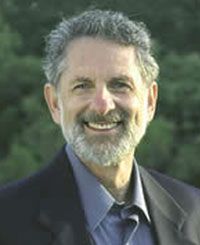Where is the Most Peaceful Place on the Planet?
A few years ago my wife and I spent three months in New Zealand. We were struck by the beauty of the country, the slow pace of life, and the friendliness of the people. We had a wonderful experience on December 21st, my birthday. My whole life I’ve celebrated the shortest, darkest day of the year. But in the Southern hemisphere, of course, it’s the longest, brightest day of the year.
We were walking downtown and had planned to have dinner at a nice restaurant. It was late afternoon and my wife said she wanted to do a little shopping before the shops closed. I chuckled to myself and thought, “It’s 4 days before Christmas. The shops will be open late so they can collect the last shopping dollar. She just needs some time away from me.”
We agreed to meet at the restaurant and went our separate ways. As it got close to 5:00 I was surprised to see the shops closing. I couldn’t believe it. This would never happen in the U.S. When I asked a shopkeeper why they weren’t staying open late to make more money, he looked at me like I was a little daft. “We like spending time with our families and friends,” he informed me. “Have a nice day.”
Carlin and I had a wonderful dinner at a beautiful restaurant in the South Island town of Invercargill. We agreed that if there was anyplace in the world we’d like to live, other than our own little town of Willits, California, it would be in New Zealand.
If you don’t live in Willits and are looking for a beautiful and peaceful place to live, you may want to consider New Zealand. It has been rated as the most peaceful nation on Earth by Vision of Humanity (www.VisionofHumanity.org), an Australian-based research group that counts former President Jimmy Carter, Ted Turner, and the Dalai Lama among its endorsers.
After New Zealand, the top 10 most peaceful nations are Denmark, Norway, Iceland, Austria, Sweden, Japan, Canada, Finland and Slovenia.
Where does the U.S. rank as a peaceful country? According to the Institute for Economics and Peace that rated the relative tranquility of 144 nations according to 23 “indicators” –including gun sales, the number of homicides, the size of the military, the potential for terrorism and the number of people in jail—we rank 83rd.
To get a better sense of exactly where the U.S. fits in the peaceful scheme of things, we are less peaceful than Senegal, Bolivia, and Ukraine (ranked 80, 81, and 82 respectively). But more peaceful than Kazakhstan, Brazil, and Rwanda (ranked 84, 85, and 86).
But if you thought that living in a peaceful country was just good for men, women, children, and other living things, you’d be wrong. It’s also good for business. “Because they can work better with others, peaceful countries can constructively work together on solving some of our most pressing economic, social and environmental problems. Indeed, peace is the prerequisite to helping solve today\’s major challenges, such as food and water scarcity, decreasing biodiversity or climate change,” said Clyde McConaghy, a former advertising director and business executive who developed the index with entrepreneur Steve Killelea.
“Peace is a concrete aim that can be measured and valued, not just in social terms but in economic terms. There is a clear correlation between the economic crisis and the decline in peace,” Mr. McConaghy continued, adding that peace tends to promote productivity and trade.
Given our present economic crisis, perhaps one of the best things we could do in the U.S. to stimulate the economy is to become more like New Zealand and less like Iraq (the least peaceful country of the 144 surveyed). Let me see, when was the last time New Zealand invaded another country to secure access to cheap oil?
If you’d like to receive a free copy of my e-newsletter you can sign up at www.MenAlive.com.


